
THE VOICE OF INTERNATIONAL LITHUANIA
|
VilNews has its own Google archive! Type a word in the above search box to find any article.
You can also follow us on Facebook. We have two different pages. Click to open and join.
|
Archive for December, 2012
- Posted by - (0) Comment
Eastern Europe's
watchdog in the U.S.
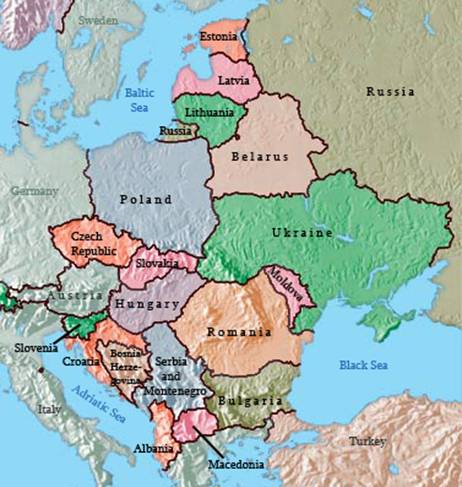
A constantly relevant focus of CEEC is Russia's increased use of
"soft power" against Lithuania and the other 17 countries that
constitute Central and Eastern Europe.
Member of our VilNews Honorary Council and regular contributor as a columnist, Dr. Stan Backaitis, is also a member of the Central and East European Coalition (CEEC), Eastern Europe's watchdog in the United States. A constantly relevant focus of this organization is Russia's increased use of "soft power" against Lithuania and the other 17 countries that constitute CEE. Dr. Backaitis today has made us aware of a new U.S. law in the country's relations with Russia. The new law grants Russia and Moldova permanent normal trade relations, but it is coupled with the Sergei Magnitsky Rule of Law Accountability Act, which honors a dead Russian. The law blacklists Russians connected to the death of Magnitsky in police custody and to other gross human rights violations, prohibiting entrance to the United States and use of its banking system.
See also:
Russia can turn the lights out on Lithuania any time it pleases
- Bookmark :
- Digg
- del.icio.us
- Stumbleupon
- Redit it
- Posted by - (0) Comment
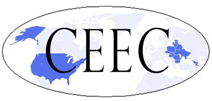
Eastern Europe's
watchdog in the U.S.

A constantly relevant focus of CEEC is Russia's increased use of "soft power" against
Lithuania and the other 17 countries that constitute Central and Eastern Europe.
Member of our VilNews Honorary Council and regular contributor as a columnist, Dr. Stan Backaitis, is also a member of the Central and East European Coalition (CEEC), Eastern Europe's watchdog in the United States. A constantly relevant focus of this organization is Russia's increased use of "soft power" against Lithuania and the other 17 countries that constitute CEE. Dr. Backaitis today has made us aware of a new U.S. law in the country's relations with Russia. The new law grants Russia and Moldova permanent normal trade relations, but it is coupled with the Sergei Magnitsky Rule of Law Accountability Act, which honors a dead Russian. The law blacklists Russians connected to the death of Magnitsky in police custody and to other gross human rights violations, prohibiting entrance to the United States and use of its banking system.
The Central and East European Coalition (CEEC) was established in 1994 and is comprised of 18 national membership organizations that represent more than 22 million Americans who trace their heritage to the countries of Central and Eastern Europe (CEE). CEEC represents Americans of Armenian, Belarusan, Bulgarian, Czech, Estonian, Georgian, Hungarian, Latvian, Lithuanian, Polish, Romanian, Slovak, and Ukrainian descent.
The CEEC has been regularly consulted by U.S. authorities over the years on a variety of issues, such as NATO enlargement, U.S. assistance to Central and Eastern Europe, Bosnia, Kosovo, the Comprehensive Nuclear Test Ban Treaty, missile defense, and other key issues of national concern. Our member organizations regularly meet individually and as a Coalition, with high-level officials at the White House, State Department, and members of Congress.
The latest, growing tense situation between Russia and its neighbors has caused increased alarm for CEEC as Moscow’s increasingly belligerent rhetoric, internal violations of human rights, economic coercion, and increasing use of soft power to further its aims, have gone largely unheeded in American foreign policy.
CEEC has the latest years also focused much on energy issues, that have emerged as one of Europe’s most serious long-term security challenges, with the Kremlin using its energy resources for political and economic pressure in the CEE region.
- Bookmark :
- Digg
- del.icio.us
- Stumbleupon
- Redit it
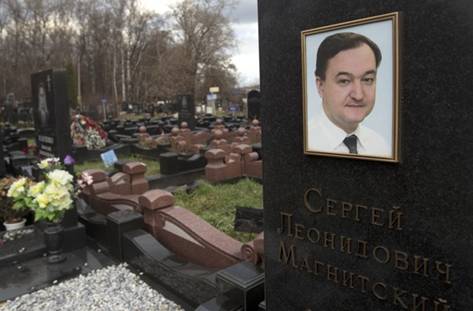
A tombstone on the grave of lawyer Sergei Magnitsky, who died in jail, at a cemetery in Moscow. A new law blacklists Russians connected to the death
of Magnitsky in police custody.
The Washington Post
MOSCOW — The U.S. Senate on Thursday repealed a trade sanction imposed 38 years ago to force the Soviet Union to allow Jews and other religious minorities to emigrate, replacing it with a modern-day punishment for human rights abuse that has enraged Russian officials.
The old law, one of the last vestiges of the Cold War, was called the Jackson-Vanik Amendment, named after a U.S. senator and a representative. The new law, passed 92 to 4, grants Russia and Moldova permanent normal trade relations, but it is coupled with the Sergei Magnitsky Rule of Law Accountability Act, which honors a dead Russian. The law blacklists Russians connected to the death of Magnitsky in police custody and to other gross human rights violations, prohibiting entrance to the United States and use of its banking system.
“Today, we close a chapter in U.S. history,” Sen. Benjamin L. Cardin (D-Md.), one of the prime movers of the Magnitsky bill, said during the debate on Jackson-Vanik. “It served its purpose. Today, we open a new chapter in U.S. leadership for human rights.”
How the United States can best promote democracy and human rights in Russia — and elsewhere — became a matter of agonizing and often bitter debate as pressure grew to repeal Jackson-Vanik. Not only was it widely considered a relic with the dissolution of the Soviet Union in 1991 and freedom to emigrate from Russia, but, under the regulations of the World Trade Organization, which Russia joined this year, it also penalized American exporters.
- Bookmark :
- Digg
- del.icio.us
- Stumbleupon
- Redit it
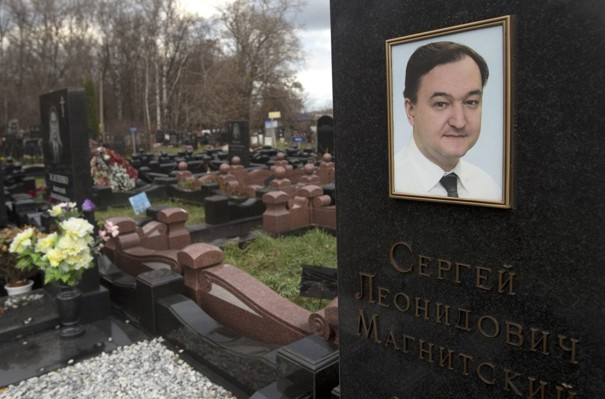
A tombstone on the grave of lawyer Sergei Magnitsky, who died in jail, at a cemetery in Moscow. A new law blacklists Russians connected to the death of Magnitsky in police custody.
The Washington Post
MOSCOW — The U.S. Senate on Thursday repealed a trade sanction imposed 38 years ago to force the Soviet Union to allow Jews and other religious minorities to emigrate, replacing it with a modern-day punishment for human rights abuse that has enraged Russian officials.
The old law, one of the last vestiges of the Cold War, was called the Jackson-Vanik Amendment, named after a U.S. senator and a representative. The new law, passed 92 to 4, grants Russia and Moldova permanent normal trade relations, but it is coupled with the Sergei Magnitsky Rule of Law Accountability Act, which honors a dead Russian. The law blacklists Russians connected to the death of Magnitsky in police custody and to other gross human rights violations, prohibiting entrance to the United States and use of its banking system. office in 2000, Vladimir Putin has expanded the powers of Russia's presidency, consolidating authority in the Kremlin and weakening other democratic institutions.
“Today, we close a chapter in U.S. history,” Sen. Benjamin L. Cardin (D-Md.), one of the prime movers of the Magnitsky bill, said during the debate on Jackson-Vanik. “It served its purpose. Today, we open a new chapter in U.S. leadership for human rights.”
How the United States can best promote democracy and human rights in Russia — and elsewhere — became a matter of agonizing and often bitter debate as pressure grew to repeal Jackson-Vanik. Not only was it widely considered a relic with the dissolution of the Soviet Union in 1991 and freedom to emigrate from Russia, but, under the regulations of the World Trade Organization, which Russia joined this year, it also penalized American exporters.
The House approved the measure last month. President Obama said he looked forward to signing the law because of the WTO benefits for American workers, although originally the administration had argued that the Magnitsky bill was unnecessary because the president could — and would — create the desired blacklist by executive order.
“My administration will continue to work with Congress and our partners to support those seeking a free and democratic future for Russia and promote the rule of law and respect for human rights around the world,” Obama said in a statement.
“We need the Magnitsky act to fill the gaps in President Obama’s policy,” said Sen. Orrin G. Hatch (R-Utah), criticizing Obama for what he called unseemly efforts to avoid offending Russian President Vladimir Putin.
Russia, as expected, was infuriated. Speaking in Brussels on Thursday, Moscow’s special representative on human rights and democracy predicted a tough response, Interfax reported.
“We regard it as unjust and unfounded,” Konstantin Dolgov said. “This is an attempt to interfere in our internal affairs.”
Sen. Jon Kyl (R-Ariz) said the bill should have applied to all countries. The House, however, had already passed the Russia-centric bill, and the Senate decided to go along.
Sen. Jeanne Shaheen (D-N.H.) said, though, that the United States intends to pay attention to human rights everywhere.
“We will stand up for those who dare to speak out against corruption,” she said. “This bill is for all the Magnitskys around the world.”
Cardin, chairman of the U.S. Helsinki Commission, has been pushing for a Magnitsky law since 2010, when most of his colleagues stumbled over pronouncing the Russian name. Debating the bill Wednesday, senator after senator recounted Magnitsky’s life story, his name rolling familiarly off their tongues.
Magnitsky was working for an American law firm in Moscow, advising Hermitage Capital on tax issues, when he discovered a $230 million tax fraud being carried out by Russian police and tax officials using documents stolen from the investment company, run by the American-born William F. Browder.
When Magnitsky accused officials, they arrested him. Magnitsky died in pretrial custody in November 2009 after nearly a year in jail. Despite evidence that he had been beaten and tortured, no one has been punished, and Magnitsky is being prosecuted posthumously.
Browder first testified to the Helsinki Commission about Magnitsky’s imprisonment several months before the Russian’s death. On Thursday, he said he hoped the Senate action would encourage passage of a similar law in Canada and Europe.
Sen. John McCain (R-Ariz.) said the United States had a moral obligation to speak out for Magnitsky, as well as others who are still alive and languishing unjustly in Russian prisons.
“I continue to worry about them,” McCain said, “and I pray for them.”
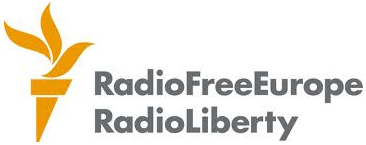
U.S. LIFTS RUSSIA, MOLDOVA TRADE BARRIERS;
PASSES MAGNITSKY SANCTIONS
Richard Solash
December 6, 2012
WASHINGTON -- The U.S. Senate has voted to permanently lift Cold War-era barriers to trade with Russia, a move long sought by Moscow that could increase commerce between the countries by billions of dollars.
In the same vote on December 6, senators also backed sanctions against Russian officials implicated in the death of anti corruption lawyer Sergei Magnitsky and in other perceived gross rights violations in Russia.
Moscow has railed against that move, which has overshadowed the trade benefits to come.
The Senate's 92-4 vote follows the passing of the bill in the U.S. House of Representatives in November. In a statement, U.S. President Barack Obama said "I look forward to receiving and signing this legislation."
When he does, Moscow will be exempted from the 1974 Jackson-Vanik Amendment, which imposed trade restrictions on the Soviet Union for its policy of limiting Jewish emigration. The restrictions have been waived for nearly two decades but remained on the books as a symbol of U.S. objections to Russia's human rights record.
Citing the weak U.S. economy, the White House had pushed Congress to lift the restrictions and grant Permanent Normal Trade Relations (PNTR) status to Russia, the world's seventh-largest economy.
The move allows the United States to take full advantage of Moscow’s August entry into the World Trade Organization, which has already benefited China and Europe.
Over White House objections, lawmakers from both parties said they would only agree to lift the restrictions if the Sergei Magnitsky Rule of Law Accountability Act were passed concurrently.
The legislation requires Obama to deny visas to, and freeze the U.S.-based assets of Russian officials whom the United States has implicated in Magnitsky’s prosecution and death, as well as officials implicated in other gross violations in Russia who have acted with impunity.
In determining who will be sanctioned, the president is expected to work from a list of more than 60 Russian officials compiled by lawmakers who introduced the legislation.
Obama can decide to keep the identities of some of the sanctioned officials classified for national security reasons.
'A New Chapter On Human Rights'
Senator Benjamin Cardin (Democrat-Maryland), the earliest and most passionate advocate of sanctions in Congress, told reporters after the vote that it signaled "a new [U.S.] chapter on human rights."
Senator John McCain (Republican-Arizona) said, "Sergei Magnitsky was an ordinary man, but he became an extraordinary champion of justice, fairness, and the rule of law in Russia, where those principles have lost nearly all meaning."
"I think we are sending a signal to Vladimir Putin and the Russian kleptocracy that these kinds of abuses of human rights will not be tolerated without us responding in some appropriate fashion," McCain said.
U.S. rights NGOs also hailed the passage of the measures.
The 37-year-old Magnitsky died in a Moscow prison three years ago after implicating top officials in a scheme to defraud the government of $230 million.
He was repeatedly denied medical care and allegedly tortured during nearly a year in pretrial detention on what supporters say were trumped-up financial-crime charges.
Russia has prosecuted only one low-level prison official linked to his death, while promoting a number others implicated in the case.
Moscow Slams 'Vengeful' Move
The incident prompted an international outcry and several Western countries are considering enacting Magnitsky-related sanctions.
Moscow's reaction to the U.S. move was swift. In a statement, the Russian Foreign Ministry called the vote "vengeful" and a "performance in the theater of the absurd" that would "negatively affect prospects for cooperation."
Aleksei Pushkov, the chairman of the State Duma, said Moscow could pass similar legislation against U.S. nationals "who have been involved in mass violations of human rights in Afghanistan, Iraq, Libya, and some other countries" and could also respond "asymmetrically."
Later, Foreign Minister Sergei Lavrov said Russia will deny visas to U.S. officials who, as he put it, violate human rights.
Quoted by Russian media, Lavrov said he had informed U.S. Secretary Hillary Clinton of Moscow's planned action during a meeting in Dublin on December 6.
In a telephone interview with Russian television on December 7, Russian Foreign Ministry spokeswoman Maria Zakharova said the move will have "a very negative effect on our future bilateral cooperation."
"Washington must have forgotten what year it is and continues to think that the Cold War still goes on," Zakharova said, "or the senators are too involved in their personal public relations and they ignore the obvious: each side can already deny entry to its territory to anyone it finds necessary; there is no need for any special legislative act."
Other Russian lawmakers called the U.S. move "hostile," "cynical," and "anti-Russian."
U.S. analysts have suggested that Moscow could also target U.S.-supported civil society initiatives in the country.
David Satter, a senior fellow at Washington's Hudson Institute, suggests that Moscow might respond to the U.S. move by "taking out their anger in unrelated cases" or increasing its anti-American rhetoric. But he maintains that the Russian authorities may be reluctant to mention the sanctions directly.
"I'm not certain that, in terms of their public posture, Russian officials are going to want to call the attention of the Russian population to this piece of legislation," Satter says, "because that also calls the attention of people to [the government's] own abuses."
The U.S. Senate also joined the House of Representatives in voting to grant Moldova normalized trade status, a victory for Europe's poorest country.
In a statement, Chisinau's embassy to Washington told RFE/RL it "strongly welcomed" the vote, which it called "a clear sign of the support for the country."
It called the Jackson-Vanik exemption a "well-deserved and somehow-delayed response to the political changes in Moldova."
________________________________________
Radio Free Europe/Radio Liberty © 2012 RFE/RL, Inc. All Rights Reserved.
http://www.rferl.org/content/us-senate-jackson-vanik-trade-barriers-magnitsky-sanctions/24791534.html
- Bookmark :
- Digg
- del.icio.us
- Stumbleupon
- Redit it
- Posted by - (0) Comment
- Bookmark :
- Digg
- del.icio.us
- Stumbleupon
- Redit it
- Posted by - (0) Comment

Lithuanian Armed Forces
See video
Follow the debate at
![]() VilNews Forum
VilNews Forum

Jon Platakis It appears that the Lithuanian fighting men have been imbued with the same valor as our knights of old.

Timotiejus Sevelis let it NEVER happen again!!! Poland in 1919-20, Bolsheviks in WW1!!! Stalin's goons in 1940 & 1944-1991. The German NAZIS!

Bartłomiej Kolubiński T. Sevelis@Surely, the historical conflict (1920+) over Vilnius between Poland and Lithuania should be broadly discussed on the good faith basis between our two nations – today’s allies and friends. Nevertheless, linking together in the same sentence: Poland with Nazis and Bolsheviks (having in mind millions of murdered victims of these two devil regimes) may potentially ruin any chance for such a mutual dialogue.

Linas Johansonas Bartłomiej Kolubiński: what is there to discuss regarding Poland's occupation of Vilnius?

Boris Bakunas I agree with Linas. The border question has been settled by the terms of membership in the European Union. Unless I'm mistaken, each EU member state is forbidden from challenging the existing borders.

Bartłomiej Kolubiński Just to clarify, what I have not definitely wanted to say is that there is a room for discussion regarding post 1989 borders. Writing about “discussion”, I suggested only the dialogue between historians of our two countries. Do you really feel that putting Marshal Pilsudski (Lithuanian, Polish historical icon) next to Hitler and Stalin is the right thing?

Linas Johansonas i do not believe that Pilsudski is considered a "Lithuanian icon"
http://en.wikipedia.org/wiki/J%C3%B3zef_Pi%C5%82sudski

Bartłomiej Kolubiński He was born in Lithuania. He is Polish icon.

Linas Johansonas My uncle was born in Prague. Doesn't make him a Czech.

Bartłomiej Kolubiński ok, please cross out the word "Lithuanian" from my post

Linas Johansonas http://en.wikipedia.org/wiki/Polish%E2%80%93Lithuanian_War

Boris Bakunas @Bartlomiej. Thank you for clarifying your statement. I agree that it is extremely important for Lithuanian, Polish, and all other historians interested in Central European history to collaborate, share their expertise, and discuss historical issues in a way that seeks to contribute to greater knowledge and understanding. And that means trying to avoid as much as possible individual biases and to comprehend others' points of view.
Also, I was surprised to learn that anyone would compare Pilsudski to Hitler and Stalin. But when I thought about all the extremist and emotionally-disturbed ultra-nationalists in the world, I realized it's not surprising at all.
Both individual and national identity are matters of: a) legal definition and b) arbitrary personal definition.
For example, legally a person is Lithuanian if he or she is a citizen of Lithuania, like I am. However, a person still has the right to identify himself or herself as Lithuanian without Lithuanian citizenship. That's an accepted practice among people of many nationalities here in the United States.
Of course, that doesn't mean others are going to agree. But so what?
We can also (if we choose) create a hierarchy of national identities. For example, some people I know regard themselves as humans first, Christians second, Europeans third, and Lithuanians fourth.
I also know people with dual citizenship who maintain allegiance to two countries at the same time.
National identity can be interpreted in different ways by different people.
It's always a pleasure to be able to discuss something with a person who is tolerant, flexible, and non-dogmatic.
Best Wishes!

Timotiejus Sevelis This is what "nationalism" creates. Discord amongst people. I'm an American citizen, 3rd generation Lithuanian-American, or as I prefer, an American of Lithuanian descent. Are the "Tarars who came to the area in the 15th century who fought with the indigenious Lithuanians who fought alongside them against the teutonic knights any less "Lithuanian?"

Timotiejus Sevelis The Lipka Tatars (also known as Belarusian Tatars, Lithuanian Tatars, Polish Tatars, Lipkowie, Lipcani or Muślimi) are a group of Turkic-speaking Tatars who originally settled in the Grand Duchy of Lithuania at the beginning of 14th century. The first settlers tried to preserve their shamanistic religion and sought asylum amongst the non-Christian Lithuanians.[1] Towards the end of the 14th century, another wave of Tatars - this time, Muslims, were invited into the Grand Duchy by Vytautas the Great. These Tatars first settled in Lithuania proper around Vilnius, Trakai, Hrodna and Kaunas [1] and later spread to other parts of the Grand Duchy that later became part of Polish Lithuanian Commonwealth. These areas comprise present-day Lithuania, Belarus and Poland. From the very beginning of their settlement in Lithuania they were known as the Lipka Tatars. While maintaining their religion, they united their fate with that of the mainly Christian Polish–Lithuanian Commonwealth. From the Battle of Grunwald onwards the Lipka Tatar light cavalry regiments participated in every significant military campaign of Lithuania and Poland.
The Lipka Tatar origins can be traced back to the descendant states of the Mongol Empire of Genghis Khan - the White Horde, the Golden Horde, the Crimean Khanate and Kazan Khanate. They initially served as a noble military caste but later they became urban-dwellers known for their crafts, horses and gardening skills. Throughout centuries they resisted assimilation and kept their traditional lifestyle. While they remained very attached to their religions, over time however, they lost their original Tatar language and for the most part adopted Polish.[2] There are still small groups of Lipka Tatars living in today's Belarus, Lithuania and Poland, as well as their communities in United States.

Timotiejus Sevelis
http://en.wikipedia.org/wiki/Lipka_Tatars
http://www.kresy.co.uk/lith_tatars.html

Timotiejus Sevelis http://rt.com/news/lithuania-polish-minority-language/ All I say is leave people alone to live their lives in PEACE. Isn't that what freedom is all about. What do we need, more forced marchs? Get across the border where you belong! That's ludicrio...See More

Boris Bakunas @Timotiejus Sevelis. I agree with everything you have said on this post. Let me just add one point. In America, we not only live in peace with people from all over the world, but our country has thrived because of the contributions that immigrants a...See More

Bartłomiej Kolubiński
http://www.lublin.eu/Unia_Lubelska-1-672.html

Boris Bakunas @Bartlomiej Kolubinksi. I'm as sure as I can be that Linas was not making a comparison between Pilsudski and Hitler or Stalin. He was merely mentioning three occasions when Lithuania was occupied as perceived by most Lithuanians.
We have a tendency ...See More

Linas Johansonas for the record, i'm not the one that mentioned Pilsudksi in the same sentence with Hilter & Stalin on this thread.

Timotiejus Sevelis I always like to put names and faces to the people mentioned. Józef Klemens Piłsudski.http://en.wikipedia.org/wiki/J%C3%B3zef_Pi%C5%82sudski

Timotiejus Sevelishttp://upload.wikimedia.org/wikipedia/commons/a/a3/Rossa-MATKA_I_SERCE_SYNA.jpg Grave of Piłsudski's mother in Vilnius, Lithuania. The huge black tombstone is inscribed: "Matka i serce syna"
("The mother and the heart of [her] son") and bears evocative lines from a poem by Słowacki.
- Bookmark :
- Digg
- del.icio.us
- Stumbleupon
- Redit it
- Posted by - (0) Comment

Grybauskaite approves incomplete Butkevius cabinet
President Dalia Grybauskaite on Friday approved 12 members of cabinet as proposed by the Prime Minister-designate Algirdas Butkevicius, though the post of two ministers remained vacant.
Grybauskaite stressed that the government must start working immediately, saying in a statement that "important work and decisions are waiting ... that's why I signed the decree to approve the government whose composition is incomplete."
The heads of the Ministry of Social Security and Labor and the Ministry of Science and Education were still undecided, as Grybauskaite rejected two of the Labor Party's candidates.
Grybauskaite nominated Butkevicius, leader of the Social Democrats as candidate for Prime Minister on November 5, following two rounds of parliament selection on October 14 and 28.
- Bookmark :
- Digg
- del.icio.us
- Stumbleupon
- Redit it
- Posted by - (0) Comment
VilNews has earlier written about the extraordinary Italian – Lithuanian relationship since 1323, mentioning that Vilnius over centuries was known as ‘The world’s most Italian city outside Italy’ and ‘Europe’s most Baroque city north of the Alps’. Today we tell a contemporary Italian-Lithuanian story, penned by Erica (30) from Bologna in northern Italy. You can also find her story in Italian, at her blog https://mybaltics.wordpress.com/
|
|
Amazing Italian influence |
|
|
Searching for the Holy Grail? Come to Vilnius! |
|
|
Santa Claus and Lithuania’s Grand Duchess buried in same South-Italian basilica |
Erica’s Lithuanian story:
In 2009 I spent the spring time in Lithuania. I fell in love with this country, and here is why.
My name is Erica, I am 30 and I write from Italy. Three years ago I got the chance to be selected within the European program “Marco Polo” [1] for an internship as translator at Via Hansa Vilnius UAB [2], a major tour operator.
For my first real European experience I was confronted with a world which I honestly barely knew. So I left with two huge suitcases and a very superficial knowledge of Lithuanian language and culture with 15 fellows flying to Vilnius, which that year happened to be the “European Capital of Culture” [3], a lucky and appreciated coincidence.
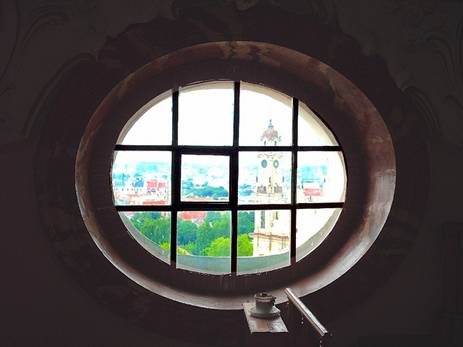
Vilnius through an Italian camera lens
Photo: Erica from Bologna, northern Italy
- Bookmark :
- Digg
- del.icio.us
- Stumbleupon
- Redit it
- Posted by - (5) Comment
| My name is Erica, |
| ||||||
VilNews has earlier written about the extraordinary Italian – Lithuanian relationship since 1323, mentioning that Vilnius over centuries was known as ‘The world’s most Italian city outside Italy’ and ‘Europe’s most Baroque city north of the Alps’. Today we tell a contemporary Italian-Lithuanian story, penned by Erica (30) from Bologna in northern Italy. You can also find her story in Italian, at her blog https://mybaltics.wordpress.com/
| |||||||
Erica’s Lithuanian story:
In 2009 I spent the spring time in Lithuania. I fell in love with this country, and here is why.
My name is Erica, I am 30 and I write from Italy. Three years ago I got the chance to be selected within the European program “Marco Polo” [1] for an internship as translator at Via Hansa Vilnius UAB [2], a major tour operator.
For my first real European experience I was confronted with a world which I honestly barely knew. So I left with two huge suitcases and a very superficial knowledge of Lithuanian language and culture with 15 fellows flying to Vilnius, which that year happened to be the “European Capital of Culture” [3], a lucky and appreciated coincidence.
 Vilnius through an Italian camera lens
Vilnius through an Italian camera lens
Photo: Erica from Bologna, northern Italy
The first days were not easy, mostly because of the tough climate and the nordic cuisine, but after a while things went better; also because, I suspect, we were getting cool advices both from the tutors of Mec Baltic UAB [4], where we were attending a course of Lithuanian 101, and from other locals we were getting to know, in my case the girls working at Via Hansa.
Getting to stay in a flat in old town, near the Vilniaus rotušė, meant being able to reach any destination easily, beside having the chance to live in a dreaming contest for any art lover.
So, what can young people do in the Lithuanian capital? Well, we liked gathering in the late afternoon in some park to chat a bit and watch the sunset, or spending the evening in the most popular clubs downtown, the ones usually packed up with young boys and girls, university or Erasmus students. But in my free time I did much, much more.
- I explored all the Old Town (on foot of course and taking a map with me from the first to the very last day) and part of the most modern suburbs, until I learned streets and places by heart;
- I took pictures day after day of what struck me most, a habit that I don't usually have, and I collected my favourite shots on my Flickr account [5];
- I visited churches, monuments, cemeteries, parks and whatever looked interesting after reading about it on Vilnius In Your Pocket [6], my definitive reading since day 1;
- I travelled around the country – and beyond, since I also took a trip to Riga – to discover the many faces of the “rainy land”: Nida, Klaipeda, Palanga, Trakai, Kernavė, Purnuškės... (and boy, wasn't it raining cats and dogs while I was visiting the coast...)
I felt like I was living in a sort of big village: maybe I did not know the neighbours, but life seemed easier, stressless, I walked a lot, I felt secure even at night alone in the street, I shopped at small shops near home, I took part to the events planned for Vilnius '09, including the amazing “Tebūnie Naktis”. And sometimes, while watching the old ladies selling flowers in the streets, I almost thought I could find my grandmother among them...
I chose to dine sometimes at the canteen near Šv. Onos bažnyčia, to get the chance to taste truly local dishes (more than Šaltibarščiai or cepelinai, today I miss the taste of grietinė, varškė, kibinai), and I am proud I did that.
I am glad I explored so much on my own and taking some time for me every day for things like reading a book while sitting on the bank of the Vilnelė or enjoying a dessert in the cozy atmosphere of a Double Coffee.
So yes, I have fond memories of my staying and often long to go back. I know that for many colleagues of mine it is not the same at all, while others... did go back at some point: Lithuanian girls have charming powers!
My impression is that the Lithuanian people is “young” but painfully aware and proud of its history and independence.
Unlike what happens elsewhere these years, young people in Vilnius find a job early, they start a family quite soon, their children look much more well-mannered than here in Italy, and generally speaking people just look more relaxed.
But these young people too look conscious of what it took to be finally free, and willing not to waste the chance of living in a country which looks forward, but always paying attention to the past and to the traditions.
I felt like I could breath the attachment to their nation, to their flag, to the historic dates everybody knows very well, children included, but always under a modern europeism optic, in a city where skyscrapers and hovels coexist, in a state which tries to invest in tourism, the way to meet the world par excellence.
If I think back to my experience, I can't help noticing some contrasts with the reality I live in.
For example, it is strange for me to realize that in the capital a taxi is such a cheap mean of transportation, and that it is also cheaper when booked by phone; that a SIM for your mobile phone is sold at a laughable price, including traffic; that you can attend the première of a ballet in the most important theater of the city shelling out the sum that you would use in my country to buy, say, a women's weekly magazine. I also noticed that shops do not have those family packs so popular here and that much attention is paid to wastages; water cooler bottles instead than regular ones, and little assortment of throwaway kitchenware. Napkins are also hard to find in restaurants!
I find it funny that practically each city there brews its own beer, and that many can even think that it is normal to put so much garlic in tomato sauce for pizzas!
It was odd to notice that the immigration is barely noticeable as it mainly regards people from close ethnic groups/countries, and that the beggars you might happen to meet are local old people or young drug addicts.
I still don't get how a house might miss curtains and shutters, when in the summer there can be up to 23 hours of daylight.
I found it amazing that the folk groups coming from all the corners of the country for the “Skamba skamba kankliai” looked more interested in watching other groups' shows (although the dialect could be so different that they might barely understand it) then performing, as a mark of the national unity.
I condemn that a programme so impressive, involving and full of events like Vilnius '09 was quickly forgotten and its traces on the web deleted by winding down its official site. This is a lack of respect for memory, at the very least.
I was always surprised by the vivid colors of the sunset and, while thinking it could not possibily get more beautiful than that, by the appearance of one, two, three, several hot air balloons in the sky, so close I could almost touch them, making the view unreal.
[1] http://ec.europa.eu/education/lifelong-learning-programme/ldv_en.htm
[2] http://www.viahansa.com/index.php?m1=9&lang=2&ava=1
[3] http://ec.europa.eu/culture/our-programmes-and-actions/doc2485_en.htm
[4] http://www.mecbaltic.com/index.php
[5] http://www.flickr.com/photos/39635483@N06/
[6] http://www.inyourpocket.com/lithuania/vilnius
More Erica photos:






- Bookmark :
- Digg
- del.icio.us
- Stumbleupon
- Redit it
- Posted by - (0) Comment

Jonas Mekas:
Greetings from the Serpentine Gallery in London
"I want to celebrate the small forms of cinema, the lyrical forms, the poem, the watercolour, etude, sketch, postcard, arabesque, bagatelle and little 8mm songs. I am standing in the middle of the information highway and laughing, because a butterfly on a little flower somewhere just fluttered its wings, and I know that the whole course of history will drastically change because of that flutter. A super-8 camera just made a little soft buzz somewhere, on New York's Lower East Side, and the world will never be the same"
- Jonas Mekas
Jonas Mekas greeting:
Read more...
- Bookmark :
- Digg
- del.icio.us
- Stumbleupon
- Redit it
- Posted by - (0) Comment
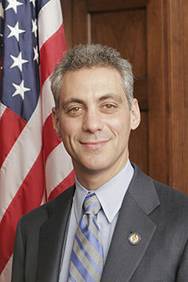
Chicago Mayor Rahm Emanuel meets with Lithuanian consul
Mayor Rahm Emanuel and the Lithuanian Consul General Marijus Gudynas met last week to discuss Chicago's growing cultural and economic partnership with its Lithuanian Sister City of Vilnius. Chicago and Vilniushave been Sister Cities since 1993.
"I welcome Consul General Gudynas and am pleased to continue strengthening the relationship between our two cities," said Mayor Emanuel. "This partnership fuels bilateral economic development and adds to Chicago's place as a center of the global economy. Chicago is proud to include Lithuanians as part of its diverse community and history and we look forward to many further interactions and opportunities."
Mayor Emanuel is committed to maintaining and fostering greater dialogue and collaboration between both cities to support mutual economic growth. In the past three years, there has been an 82% increase in exports to Lithuania from Chicago and a 72% increase in imports from Lithuania to Chicago.
Chicago and Vilnius' economic success is only strengthened by their deep historical and cultural links. The Balzekas Museum of Lithuanian Culture and the only Lithuanian language daily published abroad, the Draugas newspaper, are located in Chicago. Major Chicago customs district exports to Lithuania include medical instruments, machinery, computers and electronics. Abbott Laboratories, Draft FCB, Wrigley Jr. Co., Leo Burnett, Havi, Global Solutions, Amcor Flexibles, Kraft Foods, McDonald’s, Spraying systems, and Tenneco Automotiveare among the Chicago area-based companies with offices in Lithuania.
- Bookmark :
- Digg
- del.icio.us
- Stumbleupon
- Redit it
- Posted by - (0) Comment
Lithuania’s second capital
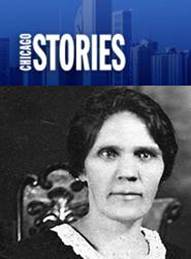
By Frank Passic, Albion, Michigan.
When Lithuania came under Russian control in 1795, the Russians did all they could to “Russify” the Lithuanians, but they were continually met with stiff opposition. During the last half of the 19th Century, oppression increased as parochial schools were closed and Lithuanian printed matter was forbidden. Repressive measures were forced upon the people by the Czar, adding to the misery of the Lithuanian nation which already suffered from famine and mass unemployment.
As a result, thousands of Lithuanians fled their homeland in the late 19th and early 20th centuries prior to World War I. Emigration to America eventually totaled 635,000 individuals, approximately 20 percent of the population of Lithuania!
Read more...
- Bookmark :
- Digg
- del.icio.us
- Stumbleupon
- Redit it
- Posted by - (0) Comment
|
|
24 NOV – 26 DEC 2012 |
|
|
Kaunas, Lithuania's second largest city and former capital, is receiving much attention in VilNews now as 2012 is coming to an end. We focus on history, business, culture, innovation, tourism and more. We would also like to hear from you who have your personal Kaunas story to tell... Send us your Kaunas story! |
||
|
Advent in Kaunas
Why not visit Kaunas this advent? Let’s give you some good reasons. |
||
Kaunas – the taste
|
- Bookmark :
- Digg
- del.icio.us
- Stumbleupon
- Redit it
- Posted by - (0) Comment
|
|
KAUNAS IN FOCUS |
|
|
Kaunas, Lithuania's second largest city and former capital, is receiving much attention in VilNews this winter. We focus on history, business, culture, innovation, tourism and more. We would also like to hear from you who have your personal Kaunas story to tell... Send us your Kaunas story!
|
||
|
Visit Kaunas this winter!
Why not visit Kaunas this advent? Let’s give you some good reasons. See below.
|
||
|
Kaunas – the taste of real Lithuania!
By Arnas Menciūnas, Welcome to Kaunas, the city which has mostly preserved the national character of the country, offering plenty of activities to everyone. Visit the heart of Lithuania and experience it‘s unique atmosphere: Feast here! Kaunas is home to a variety of festivals and events, including the famous Kaunas Jazz festival, Hanza days, Operetta, Pažaislis Classical Music festival, Bike show, Kaunas city days, Songs festival (listed by UNESCO), International Modern Dance Festival and much more. Visit! The remarkable Old Town which is a collection of ancient architectural monuments: the remnants of the 14th century with remains of Kaunas castle, the buildings of the Middle Ages in the Gothic and the Art Déco styles. The Kaunas Fortress is a valuable military heritage composed of a number of constructions that used to be a military complex. There are nine Forts around the city and the IXth Fort serves a museum. The macabre collection of nearly 3,000 devils at the Devils' Museum and the exhibitions showing the unique artistic styles of composer and painter M. K. Ciurlionis, as well as J. Maciunas initiator of the avant-garde Fluxus art movement. Taste it! The centre-piece of Lithuanian cuisine is dark rye bread. It is shown a great respect and even called "holy" and Lithuanians link many beliefs and magic with it. The great opportunity to taste it is to have soup in a bread bowl. Lithuanian drinks have very old traditions, to get to know them the "Stumbras" museum offers a guided tour of the history and tasting of strong drinks. Among the multitude of things that make any Lithuanian swell with pride (rich history, amber, beautiful nature, basketball, etc.), there is one that has a special place in his heart. This source of pride is the Lithuanian Beer. Make a wish! The beautiful confluence of two biggest Lithuanian rivers is well known for a magical saying - the Nemunas river is a male and the Neris is a female . The meeting of two rivers is considered as a marriage of a couple. Two rivers meet in Kaunas, they join and never split up! For those who want their dreams to come true it‘s a right place to go on rendezvous. See it! The whole Lithuania in one place is in the open air museum in Rumšiškės, which is the biggest open air museum in Eastern Europe. The museum with its collection of authentic wooden villages represents different regions of Lithuania: Zemaitija, Aukstaitija, Dzukija, Suvalkija and Lithuania Minor. Ride on it! The Funicular - a unique mean of transportation, is still in use today, including the genuine pre-war wagon, wooden seats, and stop platforms. Even today the funicular takes people up to the hill, from which the panorama of the Kaunas city centre and Old town is wide open. Kaunas is the only city among Baltic States, where such means of transportation is available. Sail! The biggest man-made water basin in Lithuania, which is surrounded by a wonderful landscape. Kaunas Sea is a perfect place for water activities. So see you on the deck! If you want to feel the real Lithuanian spirit, visit Kaunas and discover it. The heart of Lithuanian culture, tradition and history is just waiting to be discovered. Hotel news in 2012 IBIS KAUNAS CENTRE (opened in April, 2012) The Ibis Kaunas Centre hotel is located in the centre of Kaunas, within walking distance to the historic Old Town, close to railway and bus station and easy access to the highway to International Kaunas Airport. Ideal for business and leisure stays where guests can explore the city of Kaunas. It has 125 air-conditioned rooms with free Internet access, conference facilities, a bar serving snacks 24/7 and onsite parking. Our restaurant, The Oopen will delight you with pasta & grill dishes. Accor is the world’s number-one and Europe’s leading hotel operator. It has 440,000 rooms in nearly 3,500 hotels in 92 countries. Its extensive brand portfolio – encompassing Sofitel, Pullman, MGallery, Grand Mercure, Novotel, Suite Novotel, Mercur, Adagio, ibis, ibis Styles, Adagio Access, ibis budget and hotelF1 – provides a comprehensive range of options across the luxury to economy spectrum. Hotel and Eco center BABILONAS 2012 years 22 th. of June renovated hotel "Babilonas" was opened and now it's not only hotel, but and eco-tourism center. The rooms radiate a feeling of coziness created by modern wooden windows, curtains made from Lithuanian linen and the breathtaking panoramas of the city and the surrounding landscape. We can offer 50 high-quality German and American bikes, which can travel in urban areas and long distances. In formed package are included active entertainment, meals, transportation. Kaunas tourism information center and conference bureau offers original ways to get to know Kaunas. Unique guided tours allow you to glimpse the real charm of the city and see things that you never expected! Every visitor can choose These excurions: „Kaunas Compliments Women“, „The Old Town secrets in Kaunas”, „Strong alcohol degustation in Factory “Stumbras”, „Beer Route in Kaunas (excursion and degustation)”, „Basketball history in Kaunas“, „Sweet Kaunas",, „Spirit of Kaunas Catacombs”, „Kaunas – Provisional Capital“.
|
- Bookmark :
- Digg
- del.icio.us
- Stumbleupon
- Redit it
- Posted by - (0) Comment
|
|
Kaunas Castle |
|
|
Town Hall
|
|
|
Arch-Cathedral Basilica
|
|
|
Vilnius Street
|
|
|
Historical Presidential Palace
|
|
|
Musical Theatre
|
|
|
St. Michael the Archangel Church (Sobor)
|
|
|
Pažaislis Monastery
|
|
|
Kaunas Funiculars |
|
|
Kaunas Monumental Christ’s Resurrection Church |
|
|
House of Perkūnas |
- Bookmark :
- Digg
- del.icio.us
- Stumbleupon
- Redit it
- Posted by - (1) Comment
| PLACES TO SEE IN KAUNAS | |
| Kaunas Castle |
|
| Town Hall
|
|
| Arch-Cathedral Basilica
|
|
| Vilnius Street
|
|
| Historical Presidential Palace
|
|
| Musical Theatre
|
|
| St. Michael the Archangel Church (Sobor)
|
|
| Pažaislis Monastery
|
|
| Kaunas Funiculars |
|
| Kaunas Monumental Christ’s Resurrection Church |
|
| House of Perkūnas The ruined house was rebuilt in the 19th century and served as a school and theatre, which was attended by Polish-Lithuanian poet Adam Mickiewicz. At the end of the 19th Century it was renamed "House of Perkūnas", when a figure, interpreted by the romantic historians of that time as an idol of the Baltic pagan god of thunder and the sky Perkūnas was found in one of its walls. Today, the house of Perkūnas once again belongs to the Jesuits and houses a museum of Adam Mickiewicz. |
- Bookmark :
- Digg
- del.icio.us
- Stumbleupon
- Redit it
VilNews e-magazine is published in Vilnius, Lithuania. Editor-in-Chief: Mr. Aage Myhre. Inquires to the editors: editor@VilNews.com.
Code of Ethics: See Section 2 – about VilNews. VilNews is not responsible for content on external links/web pages.
HOW TO ADVERTISE IN VILNEWS.
All content is copyrighted © 2011. UAB ‘VilNews’.

 Click on the buttons to open and read each of VilNews' 18 sub-sections
Click on the buttons to open and read each of VilNews' 18 sub-sections 

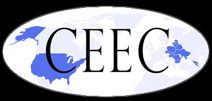












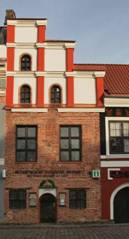

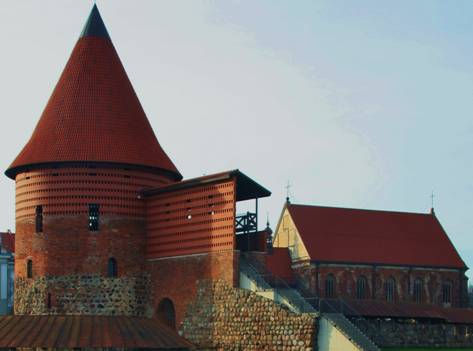
























.jpg)



